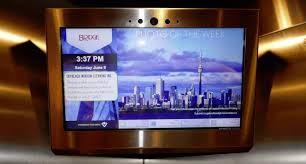 June 2023
June 2023
Paper or electronic? That is the choice each condominium corporation must make for storing records.

Volumes of records are generated each year – meeting minutes, financial payments and receipts, owner information, inspection reports and thousands of owner communications are just some of the tens of thousands of pieces of information generated by a single condominium corporation each year. How much of this really needs to be retained and for how long? What must be kept in paper form? How should it be stored so it can be accessible when required?
There are no laws requiring records to be maintained in a specific format, nor details on exactly what information should be retained. While the Condo Act does provide some guidance, this is not nearly adequate for a well-run community. Common sense and experience offer better guidance.
Paper records, in most cases, have become redundant.
Original signed documents should always be retained. This includes contracts and agreements of all types. There are times when producing an original signature is necessary, most likely during litigation and for audit purposes. For these documents, electronic records should also be maintained. For all other documentation, electronic records are superior.
Electronic records are preferable for many reasons. There is no benefit to storing documents in a filing cabinet or storage room, for seven years or longer, when a more practical option is available. Electronic records require no physical space. They are more easily searched and produced when needed. Financial and cost savings are enormous. Better access to records improves decisions by making the board and management less dependent on memory or personal knowledge. When there is turnover in directors or management, electronic records ensure information and knowledge don’t simply “disappear”.
Scanned documents stored electronically are more secure than paper. They are protected from unwanted viewing, access can be limited to those with authorization, and can be made available as needed. Electronic backups and systems prevent unintentional loss.
Electronic records can be more easily made accessible to owners more quickly and at lower cost. This improves transparency while reducing workload.
Communications to and from specific residents including service requests are a problem unique to high-rise communities. There is no possible way to monitor, respond to and track the many thousands of interactions that occur each year. For communities which rely on saving inbound e-mail, this is a limited and poor form of record keeping. Important information often can’t be found. When a condominium corporation replaces their manager or management company, they may lose access to records stored in an e-mail account they don’t control. Finally, there is no practical way for categorizing service requests to easily and proactively respond to internal matters.
Practical solutions are readily available. Condominium management software and apps ensure all communications are assigned to a suite number. A complete history of interactions for each suite is accessible in seconds. This same information can be used to understand where water problems are increasing, windows are failing, noise complaints are on the rise, or to identify where there are complaints about smoking. Amenity bookings help understand which common areas are underutilized and in need of updating. Condo boards have access to a wealth of data about their building allowing them to make better decisions.
Most companies have embraced electronic record keeping and recognize there is nothing that should not be in digital format. Condominium corporations have been slower to embrace the practice and remain behind the curve in terms of efficient management.
 With everything stored electronically in one easily accessible place, time-consuming tasks are simplified or eliminated. Condo boards and management are more effective and residents are better informed.
With everything stored electronically in one easily accessible place, time-consuming tasks are simplified or eliminated. Condo boards and management are more effective and residents are better informed.







